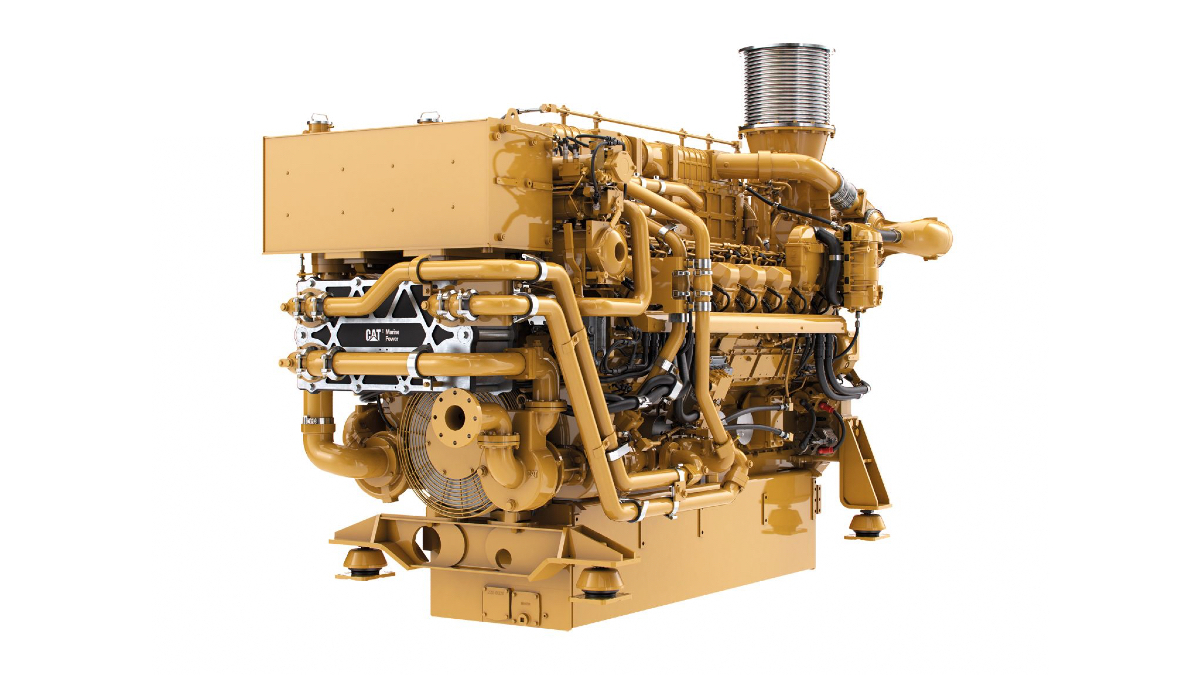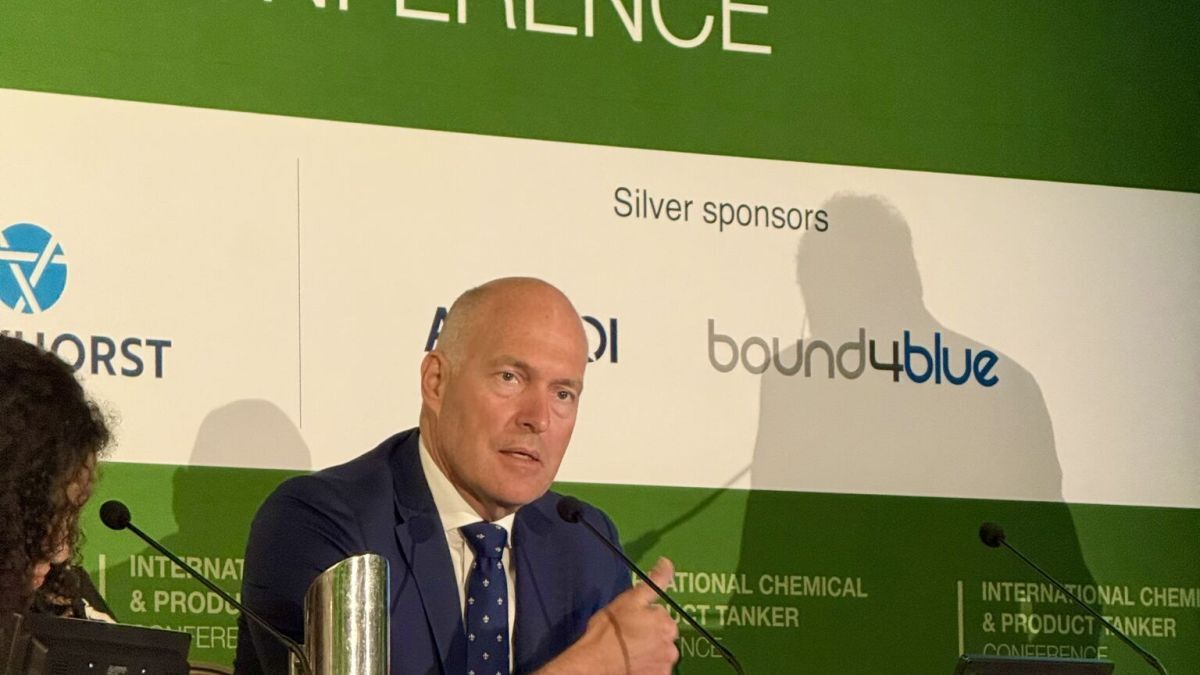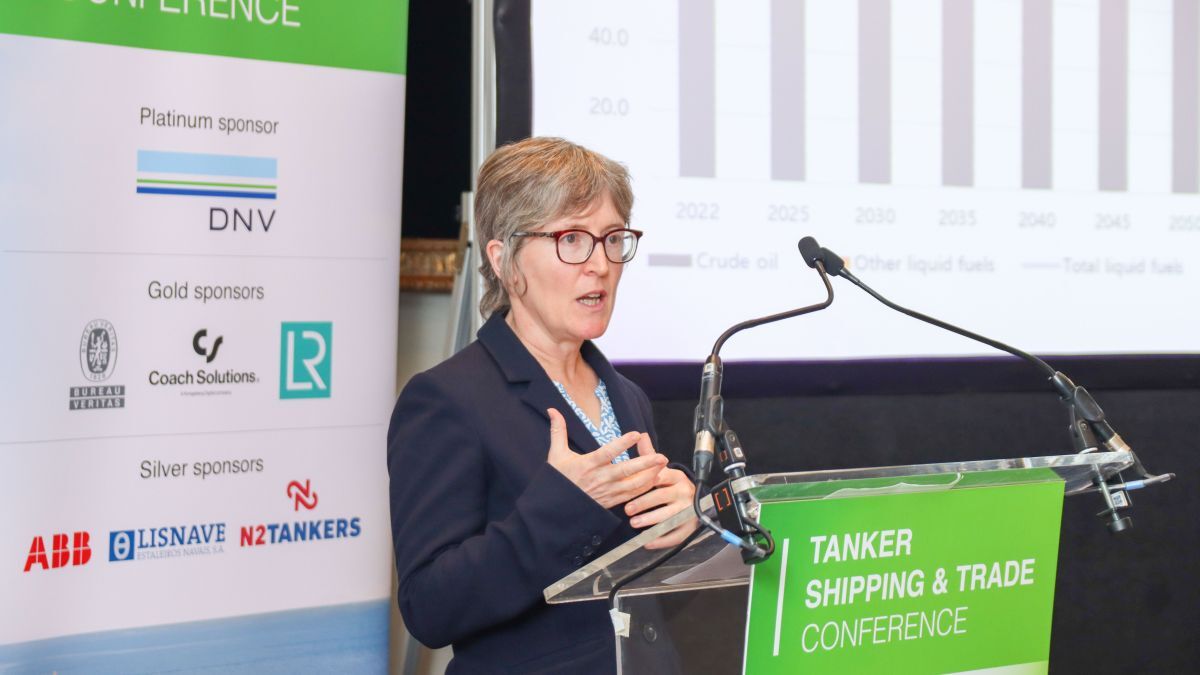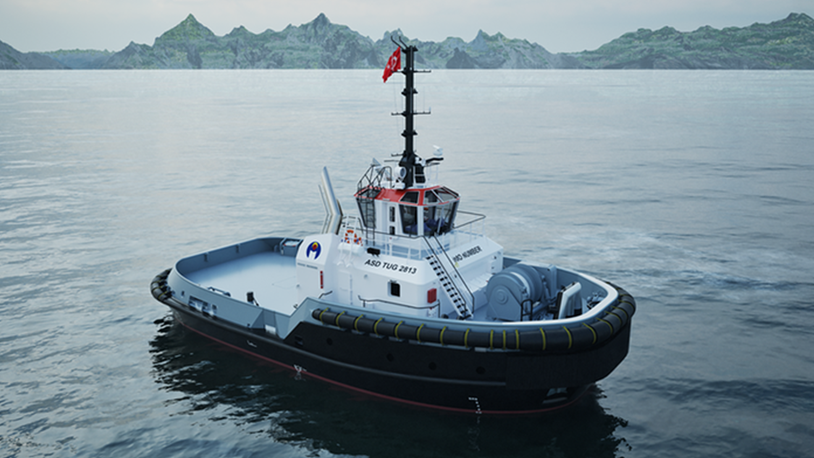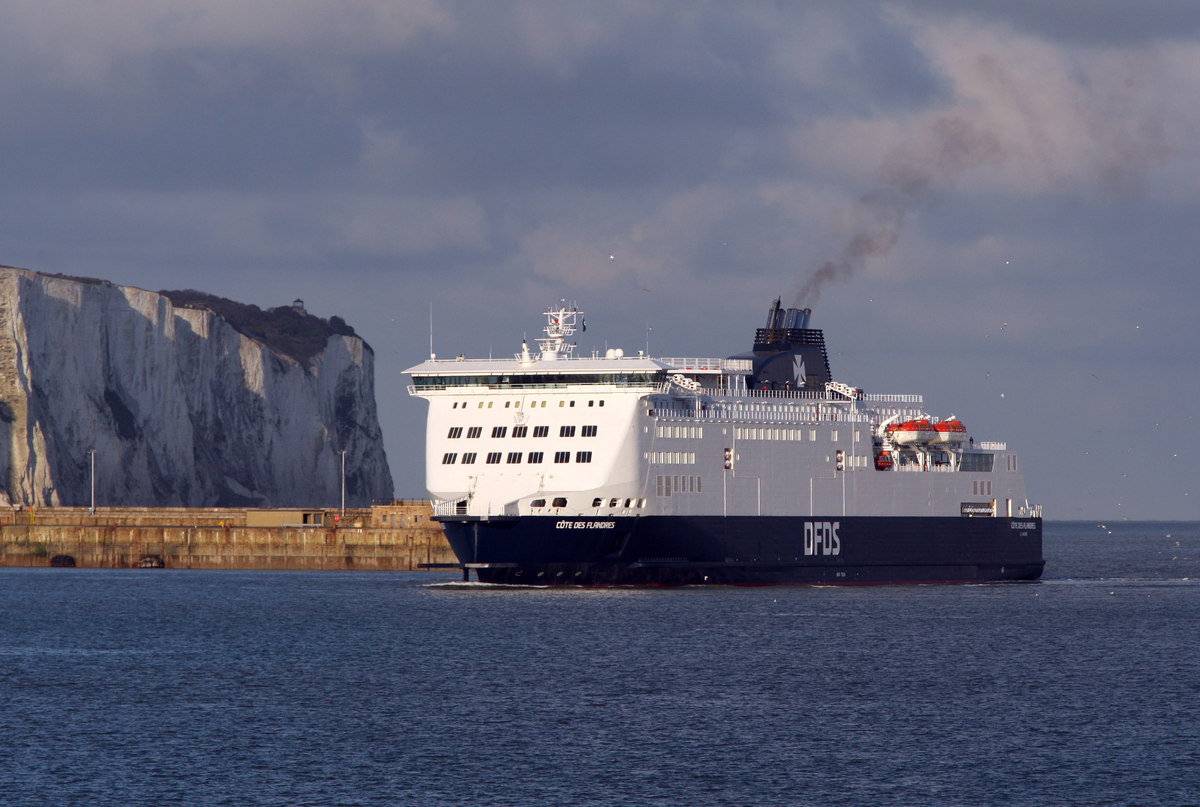Business Sectors
Events
Contents
Register to read more articles.
DNV issues AiP for Cat 3500E methanol-ready engines
Caterpillar Marine receives an approval in principle for its four-stroke Cat 3500E methanol-ready engine technology
Caterpillar Marine took another step toward commercialising its Cat 3500E methanol-ready marine propulsion and auxiliary engines, receiving an approval in principle (AiP) from DNV.
This AiP and DNV class notation validate Caterpillar Marine’s methanol-ready dual-fuel engine solution. The four-stroke, high-speed Cat 3500E engines are available in 12-cylinder (rated up to 1,901 kW) and 16-cylinder (rated up to 2,525 kW) configurations. Additionally, the enginebuilder said it would offer update kits for Cat 3500E diesels in addition to offering new methanol-burning engines.
“Methanol will play an important role in the maritime industry’s energy transition efforts, and we look forward to providing vessel operators with high-quality methanol solutions,” said Caterpillar Marine vice president and general manager, Brad Johnson.
These Cat 3500E methanol-ready engines will enable vessel operators that require high-power propulsion for heavy loads to use green methanol as a fuel to help reduce greenhouse gas emissions on a well-to-wake basis.
Caterpillar Marine first announced its methanol engine technology in March 2022, followed six months later by revealing methanol-readiness for the 3500E-series marine engines.
In May 2024, the enginebuilder signed agreements at ITS 2024 in Dubai, confirming its first set of field demonstrator methanol dual-fuel 3500E marine engines would be installed in newbuild tugs being built by Damen Shipyards Group in 2026.
In announcing the AiP, Caterpillar also said it was “exploring other alcohol-based fuels” in parallel with the methanol engine development. “The company has already started testing these fuels in the same engine and will provide more information as the development progresses.”
In 2024, Caterpillar Marine product manager Will Watson told Riviera Caterpillar was exploring alcohol-based fuels such as ethanol for use in markets where there is high availability, for example in Brazil. The US and Brazil are the world’s largest producers of ethanol, accounting for about 80% of global production.
Some of the latest tenders from Brazilian oil major Petrobras have specified the use of ethanol in offshore support vessel newbuilds.
Progress Rail, a Caterpillar company, and Argonne National Laboratory are researching the use of hydrous ethanol, an alcohol-based renewable biofuel, for use in locomotive engines to reduce CO2 and greenhouse gas emissions.
Methanol will be one of the fuels explored at Tugtechnology 2025 Conference, Exhibition and Awards, Antwerp, Belgium, 20-21 May 2025.
Related to this Story
Women in Maritime Today: Elin Saltkjel says no day working in maritime is dull
Events
Maritime Environmental Protection Webinar Week
Cyber & Vessel Security Webinar Week
The illusion of safety: what we're getting wrong about crews, tech, and fatigue
Responsible Ship Recycling Forum 2025
© 2024 Riviera Maritime Media Ltd.


